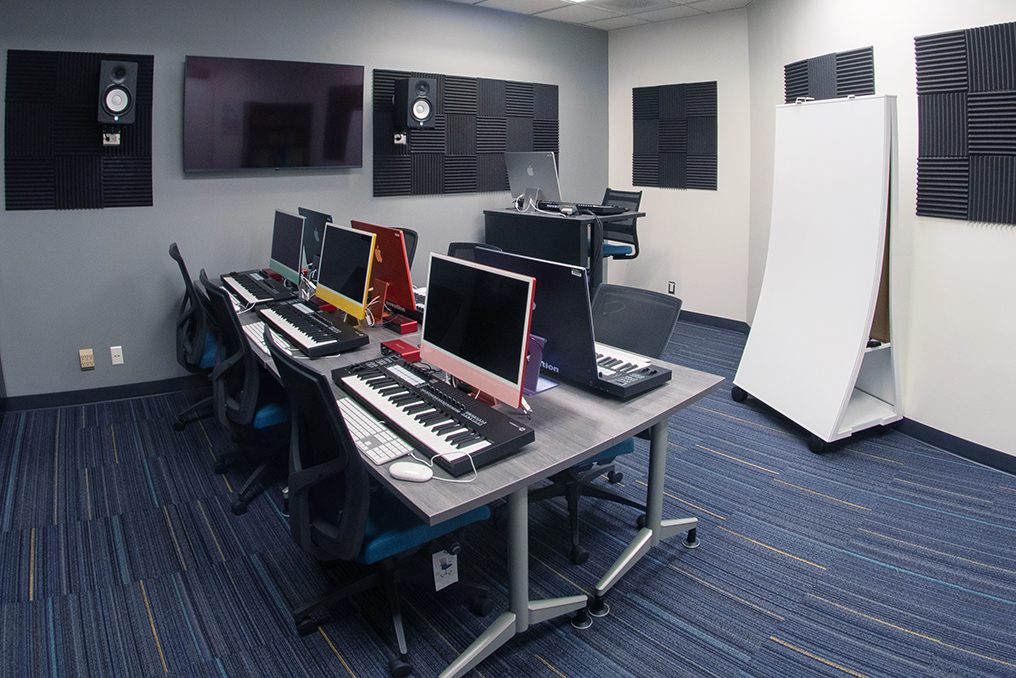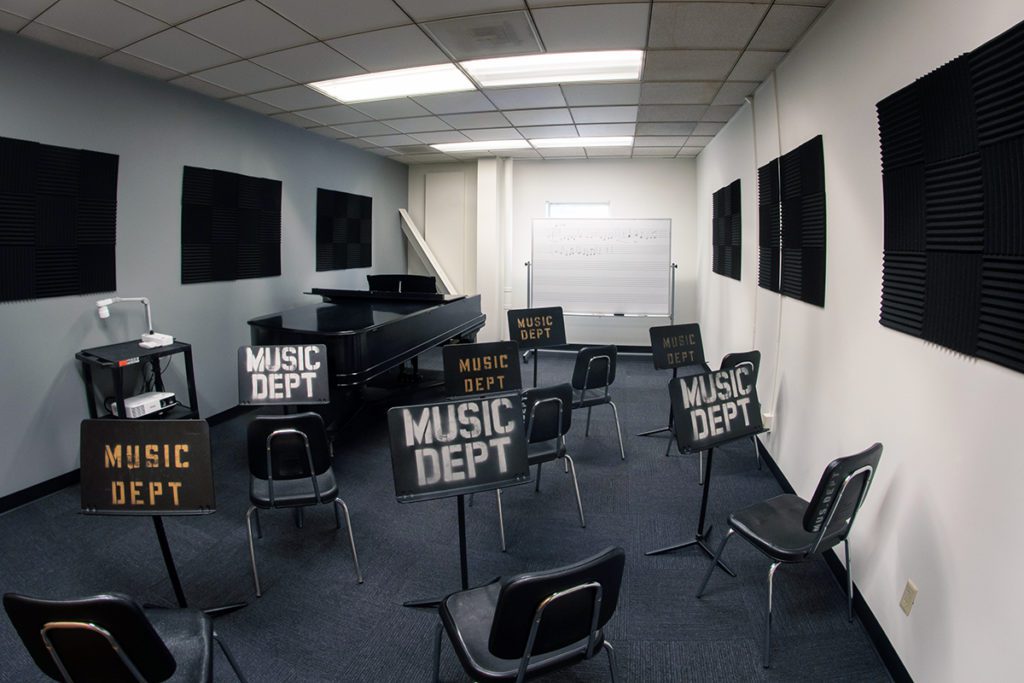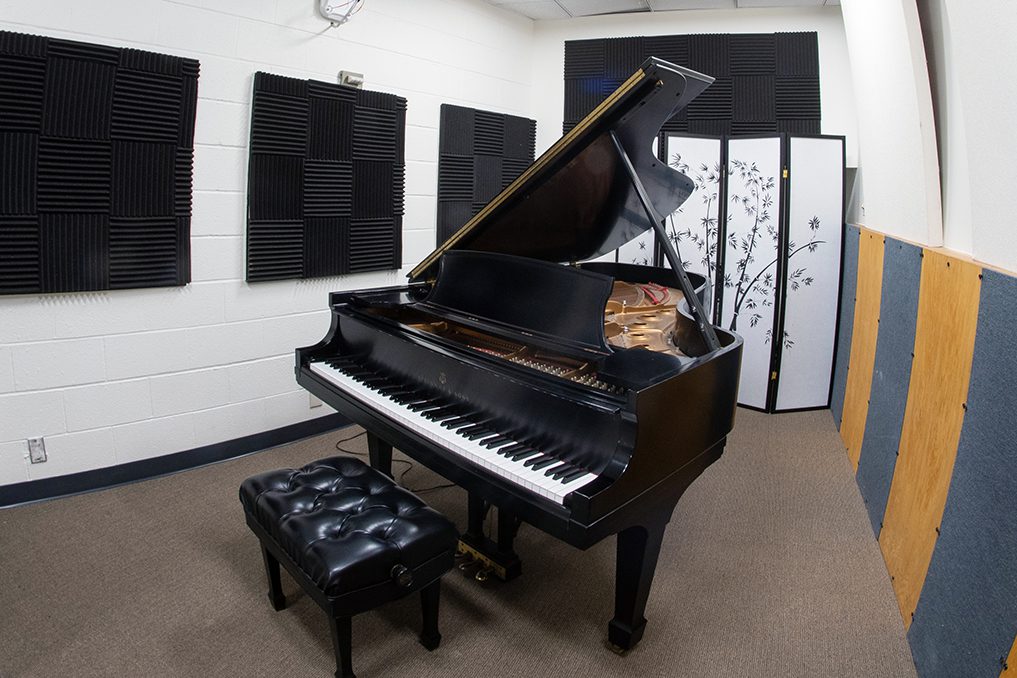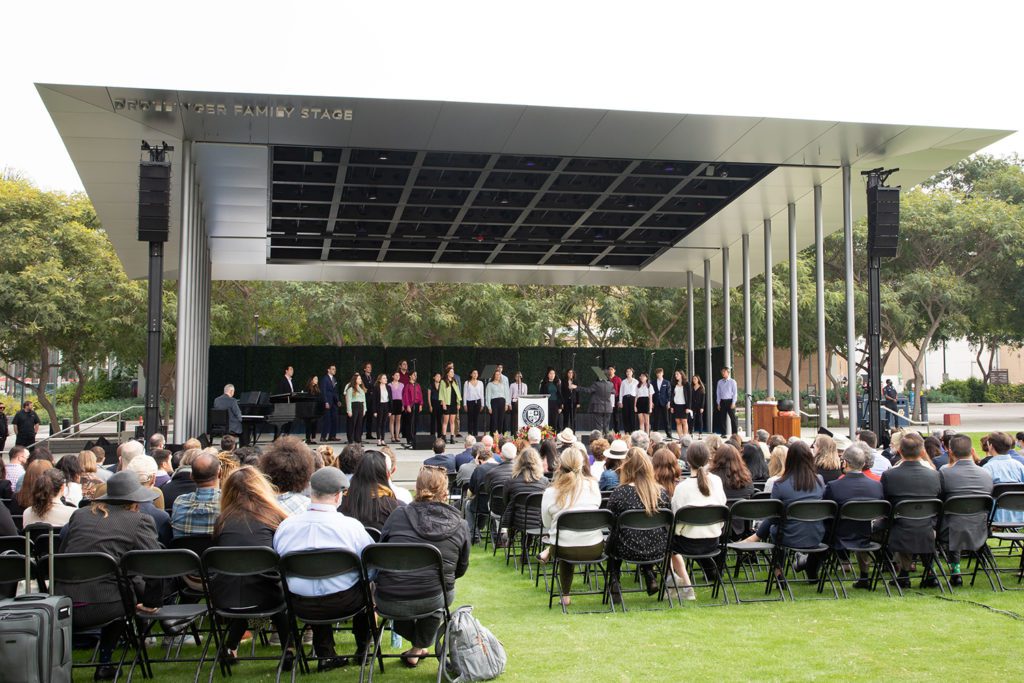With brand new spaces, added concentrations, creative partnerships, and growing faculty and enrollment numbers, the Music Department is leaning in to a new trajectory. Historically an intimate department, Music has seen an uptick in interest, this fall welcoming its largest freshman class in decades, and seeing a record number of early action auditions for the 2022-23 academic year.
According to associate professor and chair of music T.J. Harper, this growth is not unexpected. “What’s been happening within the music department is nothing short of inspiring. The faculty and students have been fully committed to the department, bringing in exciting performers, guest lecturers, and new concentrations, and finding new and exciting performance opportunities for our students. We are proactively working to create dynamic learning spaces for our students that will engage their passions and prepare them for life after LMU.”
To accommodate demand, the department debuted some fresh new classroom and rehearsal spaces this semester. Instructional spaces have been refreshed and upgraded with new learning tools, and construction has been completed on a music technology lab to support the new popular music concentration. Burns 129 was renovated to create a new piano/ensemble studio including a grand piano, and Burns 111, which previously housed the choral library, was re-imagined as an additional studio space including a Steinway grand piano. In addition, the newly-constructed Drollinger Family Stage in Lawton Plaza, CFA’s outdoor performance venue, was inaugurated with a performance by the LMU Choruses.
The new contemporary styles and practices concentration began this fall, and allows students to explore music technology and popular music. The concentration is designed for students interested in pursuing a career in the music industry as producers, songwriters, recording engineers, TV and film composers, or even performance artists.
“Our department has traditionally been more classically based, but with this new concentration we really want to take advantage of our proximity to the music industry here in LA,” said assistant professor of music David Carter, the program director. “We’ve built the new concentration from the ground up and I think it will be a good way to help diversify the music curriculum, especially by studying more artists and composers who are women and people of color.”
New courses such as music and social justice aim to invite non-music majors to learn how music can engage and advocate for those on the margins of society. Music has inspired social justice movements, address moral and social problems, and allows us to be more equitable, responsive, and inclusive. This year, the course is being taught by Ernest Harrison, music director and conductor of the renowned Gay Men’s Chorus of Los Angeles.
Adoption of new technologies such as Jacktrip Audio Technology have allowed music ensembles to forge new creative partnerships that would have been impossible in previous years. Developed by Stanford University’s Center for Computer Research in Music and Acoustics (CCRMA), the Jacktrip Studio Audio device allows individuals to use audio synchronously with others with little to no latency, opening the door for real-time pedagogy and music-making during virtual rehearsals. Last year, the LMU Choruses were able to collaborate and perform “alongside” El Café Chorale from Universidad Nacional in Costa Rica, learning Spanish music and working with the chorale’s director.
LMU Music is living the CFA principle that new and revitalized physical spaces cultivate fresh ideas and invite a wide range of possibilities, while responding to the current and future market needs in our disciplines. And the results are speaking for themselves.







